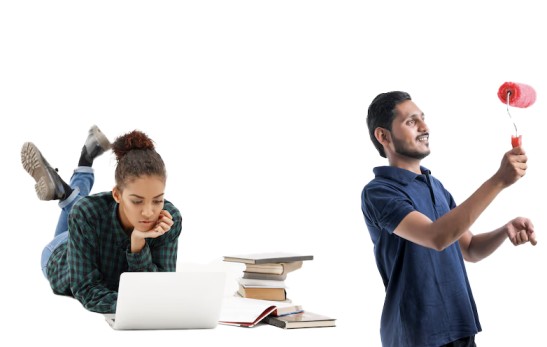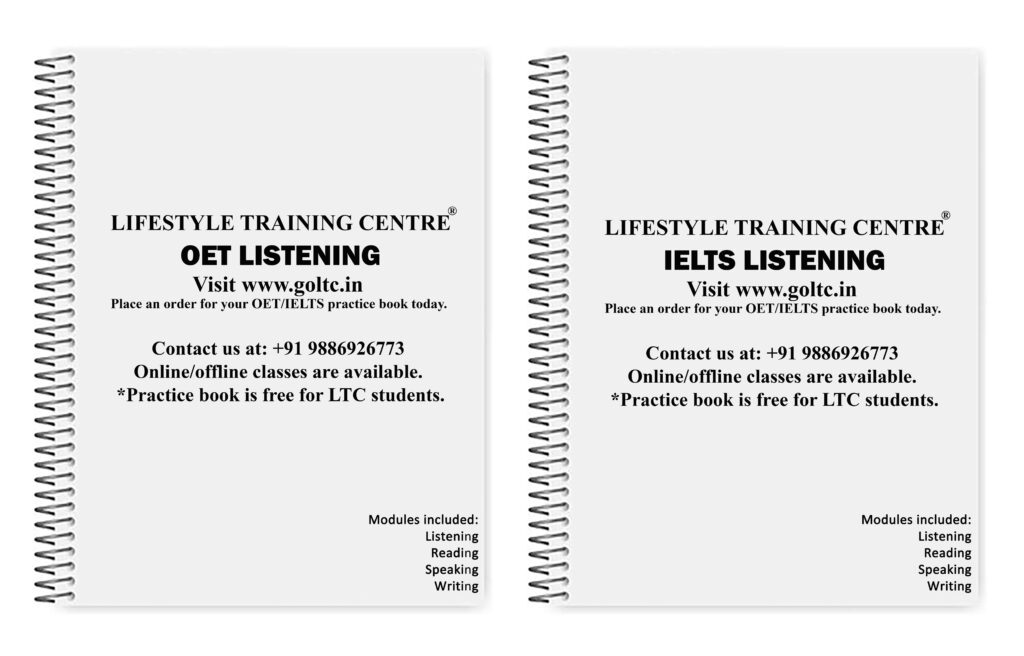SECTION 1

Questions 1-7. Look at the three restaurant advertisements on the following page. Answer the questions below by writing the letters of the appropriate restaurants (A—C) in boxes 1-7 on your answer sheet.
Example: It stops serving lunch at 2.30 pm. B
1. It is open for breakfast.
2. It is open every night for dinner.
3. It is only open for lunch on weekdays.
4. It has recently returned to its previous location.
5. It welcomes families.
6. It caters for large groups.
7. It only opens at weekends.
NEW ELECTRICITY ACCOUNT PAYMENT FACILITIES AVAILABLE FROM’ JULY 1998
After 1 July 1998, you may pay your electricity account in any of the following ways:
1. Payments via mail:
(A) No receipt required: Mail payments to: Coastside Power Locked Bag 2760 Southport NSW 3479 | (B) Receipt required: Mail payments to: Coastside Power PO Box 560 Northbridge NSW 3472 |
2. Agency payments (payments directly to the bank): Payments can be made at any branch of the Federal Bank by completing the deposit slip attached to your account notice.
NB: This facility is no longer available at South Pacific Bank branches.
3. Payments directly to Coastside Power Office: Payments can be made directly to Coastside Power Office at 78-80 Third Avenue, Northbridge. Office hours are Monday to Friday, 8.30 am to 4.30 pm.
Payment may be by personal cheque, bank cheque or cash. Note: Payments cannot be made by phone.
QUESTIONS 8-13. Read the information given in ‘New Electricity Account Payment Facilities’ on the above page and look at the statements below (Questions 8-13). In boxes 8-13 on your answer sheet write:
TRUE if the statement is true
FALSE if the statement is false
NOT GIVEN if the information is not given in the passage.
Example. You must pay your account by mail. FALSE
8. If you want a receipt, you should send your payment to the Southport address.
9. You may pay your account at branches of the Federal Bank.
10. You must pay the full amount, instalments are not permitted.
11. The Coastside Power Office is open on Saturday mornings.
12. You may pay your account by phone using your credit card.
13. There is a reduction for prompt payment.
CENTRAL LIBRARY. PERSONAL COMPUTERS AVAILABLE FOR PUBLIC TO USE
• 2 personal computers are available, for a fee of $5.00. There is also an ink jet printer attached to each terminal. The library has a number of commercially available programs for word processing and spreadsheets.
• A4 paper can be bought from the desk if you wish to print your work. Alternatively, you can bring your own paper. If you wish to store information however, you will need to bring your own floppy disk.
Bookings: Because of high demand, a maximum of one hour’s use per person per day is permitted. Bookings may be made up to three days in advance. Bookings may be made in person at the information desk or by phoning 8673 8901 during normal office hours. If for some reason you cannot keep your appointment, please telephone. If the library is not notified and you are 15 minutes late, your time can be given to someone else. Please sign in the visitors’ book at the information desk when you first arrive to use the computer.
Please note that staff are not available to train people or give a lot of detailed instruction on how to use the programs. Prior knowledge is, therefore, necessary. However, tutorial groups are available for some of the programs and classes are offered on a regular basis. Please see the loans desk for more information about our computer courses.
SECTION 2
QUESTIONS 14-20. Read the passage about personal computers below and look at the statements below (Questions 14-20). In boxes 14-20 on your answer sheet write
TRUE if the statement is true
FALSE if the statement is false
NOT GIVEN if the information is not given in the passage
14. There are two computers and two printers available for public use at the library.
15. You can buy floppy disks at the information desk.
16. The information desk is closed at weekends.
17. It is essential to reserve a computer three days in advance if you want to use one.
18. If you are more than a quarter of an hour late, you could lose your reservation for the computer.
19. Library employees do not have detailed knowledge of computers.
20. The library runs courses for people who want to learn about computers.
GOOD REASONS FOR CHOOSING ATLAS ENGLISH LANGUAGE COLLEGE
On an English course with Atlas English Language College, you improve your language skills and make friends from all over the world!
A Because Atlas courses start every Monday of the year, there’s bound to be one that fits in with your academic, personal or professional commitments. Whatever your level of language ability, from beginner to advanced, you can choose to study for any length of time, from two weeks to a full year. Courses match a range of individual requirements, from intensive examination preparation to short summer programmes. Most courses commence at 9 am and run till 3 pm.
B If you take an intensive full-time course, we will help you to select the Special Interest Options which best suit your goals. From then on, our teacher will discuss your work with you on a weekly basis. This means that you should develop the language skills you need – and that you are helped to study at your own pace.
C The popularity and success of any language school depend greatly on the quality of the teachers and the methods they employ. All Atlas teachers have specialist qualifications in the teaching of English to foreign students and are all native speakers. We employ only experienced professionals with a proven record of success in the classroom.
D Atlas’s teaching methodology is constantly revised as more is discovered about the process of learning a new language. Our teachers have access to an extensive range of materials, including the very latest in language teaching technology.
E On your first day at school, you will take a test which enables our Director of Studies to place you at the appropriate study level. Your progress will be continuously assessed and, once you have achieved specific linguistic goals, you will move up to a higher level of study.
F Every Atlas course fee includes accommodation in carefully selected homestay families. Breakfast and dinner each day are also included, so you need have no concerns about having to look for somewhere to live once you get to the school.
G On completion of any Intensive, Examination or Summer course, you will receive the Atlas Course Certificate of Attendance. On completion of a four-week course or longer you will also receive the Atlas Academic Record that reflects your ability in every aspect of the language from conversation to writing. Such a record will allow you to present your linguistic credentials to academic institutions or potential employers around the world.
QUESTIONS 21-26
The text on Atlas English Language College on the above page has seven paragraphs (A-G). Choose the most suitable headings for paragraphs B-G from the list of headings below. Write the appropriate numbers (i-ix) in boxes 21-26on your answer sheet. NB. There are more headings than paragraphs, so you will not use all of them.
LIST OF HEADINGS
i Recognition of your achievements
ii Courses start every week
iii Other services/Pastoral care/Personal arrangements
iv A personal approach
v Two meals every day
vi First-class staff
vii Up-to-date classroom practice
viii Discovering a new language
ix Monitored achievement
21. Paragraph B
22. Paragraph C
23. Paragraph D
24. Paragraph E
25. Paragraph F
26. Paragraph G
ROBOTS AT WORK
A The newspaper production process has come a long way from the old days when the paper was written, edited, typeset and ultimately printed in one building with the journalists working on the upper floors and the printing presses going on the ground floor. These days the editor, subeditors and journalists who put the paper together are likely to find themselves in a totally different building or maybe even in a different city. This is the situation which now prevails in Sydney. The daily paper is compiled at the editorial headquarters, known as the prepress centre, in the heart of the city, but printed far away in the suburbs at the printing centre. Here human beings are in the minority as much of the work is done by automated machines controlled by computers.
B Once the finished newspaper has been created for the next morning’s edition, all the pages are transmitted electronically from the prepress centre to the printing centre. The system of transmission is an update on the sophisticated page facsimile system already in use in many other newspapers. An imagesetter at the printing centre delivers the pages as films. Each page takes less than a minute to produce, although for colour pages four versions, once each for black, cyan, magenta and yellow are sent. The pages are then processed into photographic negatives and the film is used to produce aluminium printing plates ready for the presses.
C A procession of automated vehicles is busy at the new printing centre where the Sydney Morning Herald is printed each day. With lights flashing and warning horns honking, the robots (to give them their correct name, the LGVs or laser guided vehicles) look for all the world like enthusiastic machines from a science fiction movie, as they follow their own random paths around the plant busily getting on with their jobs. Automation of this kind is now standard in all modern newspaper plants. The robots can detect unauthorised personnel and alert security staff immediately if they find an “intruder”; not surprisingly, tall tales are already being told about the machines starting to take on personalities of their own.
D The robots’ principal job, however, is to shift the newsprint (the printing paper) that arrives at the plant in huge reels and emerges at the other end sometime later as newspapers. Once the size of the day’s paper and the publishing order are determined at head office, the information is punched into the computer and the LGVs are programmed to go about their work. The LGVs collect the appropriate size paper reels and take them where they have to go. When the press needs another reel its computer alerts the LGV system. The Sydney LGVs move busily around the press room fulfilling their two key functions to collect reels of newsprint either from the reel stripping stations or from the racked supplies in the newsprint storage area. At the stripping station, the tough wrapping that helps to protect a reel of paper from rough handling is removed. Any damaged paper is peeled off and the reel is then weighed.
E Then one of the four paster-robots moves in. Specifically designed for the job, it trims the paper neatly and prepares the reel for the press. If required the reel can be loaded directly onto the press; if not needed immediately, an LGV takes it to the storage area. When the press computer calls for a reel, an LGV takes it to the reel loading area of the presses. It lifts the reel into the loading position and places it in the correct spot with complete accuracy. As each reel is used up, the press drops the heavy cardboard core into a waste bin. When the bin is full, another LGV collects it and deposits the cores into a shredder for recycling.
F The LGVs move at walking speed. Should anyone step in front of one or get too close, sensors stop the vehicle until the path is clear. The company has chosen a laser guide function system for the vehicles because, as the project development manager says “The beauty of it is that if you want to change the routes, you can work out a new route on your computer and lay it down for them to follow”. When an LGV’s batteries run low, it will take itself offline and go to the nearest battery maintenance point for replacement batteries. And all this is achieved with absolute minimum human input and a much-reduced risk of injury to people working in the printing centres.
G The question newspaper workers must now ask, however, is, “how long will it be before the robots are writing the newspapers as well as running the printing centre, churning out the latest edition every morning?”
SECTION 3
QUESTIONS 27-32. The Reading Passage on the above pages has seven paragraphs (A-G). Choose the most suitable headings for paragraphs A-B and D-G from the list of headings below. Write the appropriate numbers (i-ix) in boxes 27-32 on your answer sheet. NB There are more headings than paragraphs: so, you will not use all of them.
List of Headings
i. Robots working together
ii. Preparing LGVs for take-over
iii. Looking ahead
iv. The LGVs’ main functions
v. Split location for newspaper production
vi. Newspapers superseded by technology
vii. Getting the newspaper to the printing centre
viii. Controlling the robots
ix. Beware of robots!
Example Paragraph C: ix
27 Paragraph A
28 Paragraph B
29 Paragraph D
30 Paragraph E
31 Paragraph F
32 Paragraph G
QUESTIONS 33 – 40. Complete the flow-chart below. Choose NO MORE THAN THREE WORDS from the text for each answer. Write your answers in boxes 33-40 on your answer sheet.

IELTS Speaking Task Topics
Click on any topic to explore more!
Names

Learn about the importance of names and their cultural significance.
Study / Job

Discuss various aspects of studying and working in different fields.
Hometown

Explore the charm of your hometown and its unique features.
Accomodation

Understand various types of accommodation and living situations.
Weather

Learn about how weather influences daily life and activities.
Time

Discuss the concept of time, its importance, and time management.
Television

Talk about the role of television in modern entertainment.
Museum

Discuss the cultural importance of museums and historical exhibits.
Holidays

Explore the significance of holidays and different celebrations.
Films

Learn about the impact of films on culture and society.
Leisure Time

Discuss how leisure activities impact personal well-being.
Sport

Talk about the role of sports in health, entertainment, and culture.
Vegetables and Fruits

Discuss the health benefits and importance of fresh produce.
Maths

Explore the role of mathematics in various aspects of life.
Sky

Discuss the beauty and scientific significance of the sky.
Clothes&Fashion

Explore how clothing reflects culture and personal expression.
Weekend

Discuss the importance of weekends and ways people relax.
Reading

Learn about the importance of reading and various reading habits.
Sleep

Explore how sleep impacts physical and mental well-being.
Trees&Plants

Discuss the environmental and health benefits of plants.
Newspaper

Discuss the evolving role of newspapers in the digital age.
Texting

Explore the role of text messaging in modern communication.
Memorising

Learn techniques for improving memory and memorization.
Travelling

Discuss the importance and impact of traveling in modern society.
Communication

Explore the modes and significance of communicating well
Letter&Email

Explore the differences and significance of letters vs. emails.
Swimming

Discuss the benefits of swimming for health and fitness.
Snacks

Explore the role of snacks in daily nutrition and lifestyle.
Photography

Discuss photography’s cultural and artistic significance.
Help

Talk about the importance of offering and receiving help.
History

Discuss historical events and their impact on modern society.
Handwriting

Explore the significance of handwriting in education and culture.
Music

Learn about the influence of music on emotions and society.
Colours

Discuss how colours affect perception and mood.
Teachers

Explore the role of teachers in shaping students’ futures.
Being Alone

Talk about the experience and benefits of spending time alone.
Teamwork

Learn the importance of teamwork in professional and social contexts.
Countryside & City

Explore the charm and benefits of living in the countryside.
Social Media

Discuss the impact of social media on society and relationships.
Friends

Explore the importance of friendships in life.
Artificial Intelligence (AI)

Talk about the future of AI and its role in society.
Climate Change

Discuss the causes and consequences of climate change.
Transportation

Explore different modes of transportation in your area.
Sustainable Transportation

Explore ways to make transportation more environmentally friendly.
Space Exploration

Learn about the latest advancements in space exploration.
Shopping

Explore how shopping influences culture and the economy.
Modern Technology

Discuss how modern technology is reshaping society.
Technology

Learn about the role of technology in everyday life.
Sustainable Living

Explore ways to live sustainably for the future of the planet.
Globalisation

Learn about the effects of globalisation on society and economies.
Global Warming

Discuss the causes, effects, and solutions to global warming.
Gender Equality

Explore the importance of gender equality in modern society.
Health and Fitness

Discuss the importance of maintaining a healthy lifestyle.
Renewable Energy

Learn about renewable energy sources and their impact on the environment.
Cultural Traditions in Kerala

Explore the unique cultural traditions of Kerala, your hometown.
Cultural Traditions in Your Country

Learn about the cultural traditions in your country.
Education System

Discuss the education system in your country and its effectiveness.
Traditional Cuisine

Explore the significance of traditional cuisines in your culture.
Do you need printed IELTS/ OET practice material? Place your order today. Available now for just Rs: 1,100 (including shipping all across India) Contact us at our WhatsApp number: +91 9886926773 to place your order. (Free for LTC students)

We hope this information has been valuable to you. If so, please consider a monetary donation to Lifestyle Training Centre via UPI. Your support is greatly appreciated.

Would you like to undergo training for OET, PTE, IELTS, Duolingo, Phonetics, or Spoken English with us? Kindly contact us now!
📱 Call/WhatsApp/Text: +91 9886926773
📧 Email: mail@goltc.in
Visit us in person by following the directions on Google Maps. We look forward to welcoming you to the Lifestyle Training Centre.
Follow Lifestyle Training Centre on social media:
Thank you very much!
Would you like to download a copy of the practice test? Please click on the download button below:


Pingback: DINING OUT IELTS READING ANSWERS | Lifestyle Training Centre®